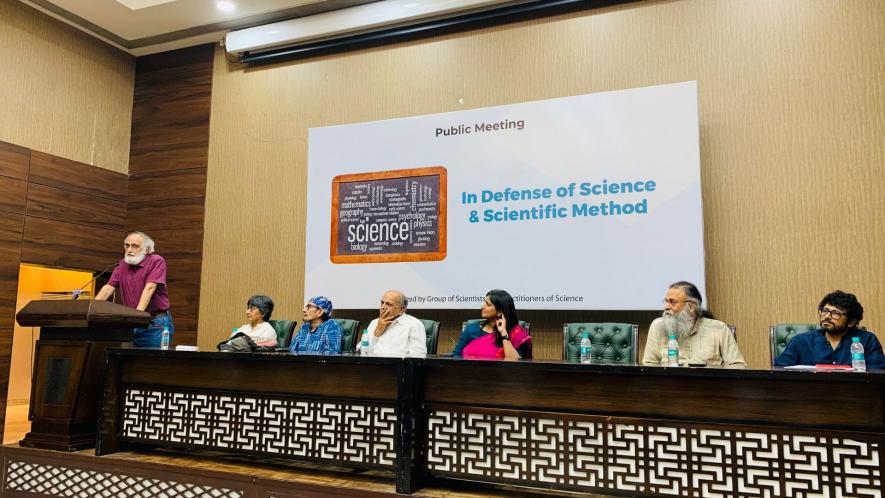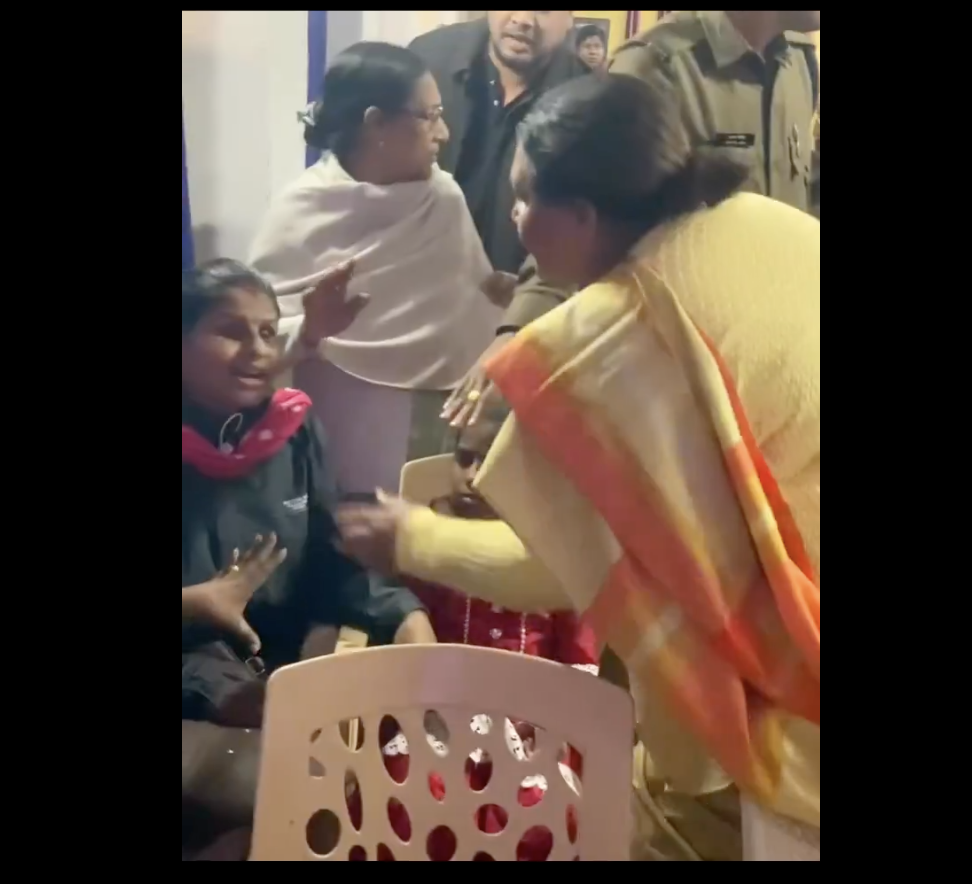By Ravi Kaushal
Delhi: Scientists and others from the country’s science community gathered for a public meeting at the Constitution Club in New Delhi on Sunday and denounced the controversial revisions in NCERT books, promotion of pseudo-science by Union ministers and cuts in funding for research projects. The speakers maintained that the quest for scientific enquiry is closely linked to the foundations of a republic and democracy.
G N Devy, an eminent linguist and educator, said the country has so far had four science policies post-independence. The first was the Scientific Policy Resolution, which laid the foundations for scientific temper; the second aimed at producing engineers, and the third focused on filing patents. Currently, our children are carrying the burden in the form of policy. Despite its shortcomings, our journey had valorised questioning, the centre stage of science. However, the current regime is using the politics of sedatives to put people to sleep and react to nothing, even when they know that governments and union ministers are simply lying.
He said, “All institutions built by the Constitution to enable reasoning have been weakened. Having done this, students, researchers, and faculty members are being terrorised, assaulted and even the use of the army is not spared. I remember three events when scientists of this country rose in anguish. Remember, it takes great courage because the funding of their projects entirely rests with the government. First, 150 scientists opposed when the Ministry of Culture funded a project for testing the racial purity of several Adivasi tribes, and they reminded that it was a replication of the experiments by Hitler in Nazi Germany in the 1930s.”
The second protest happened when it was proposed that Sanskrit had travelled with migrating people to the rest of the world and made India ‘Vishwaguru’. Most recently, protests took place over Charles Darwin’s theory of evolution being excluded from school science books. Darwin was very scared over his findings because he knew that Church would vehemently oppose them. It’s a different matter that he had to publish it because another man with similar findings was going to publish his book as well. Currently, the genealogy in Manusmriti and Puranas is in the waiting room to replace Darwin’s theory. Thus, defending science is defending democracy. To protect it, we must go to every science college and university to plant the idea of questioning.”

Dhruv Raina, a physicist at Delhi’s Jawaharlal Nehru University, said it is not only scientific expertise being delegitimised, but all expertise is under assault, be it social sciences or history. “We must recognise that the relation of science with state and industry has changed, and for the last thirty to forty years, it has been in the incubation of the industrial and military complex. Its relation with the state, too, has changed where the politics of controlling the mind poses a threat,” he said.
When Darwin’s theory of evolution was eliminated from the NCERT syllabus, many people said that his theory was wrong. “The question is not that Darwin was wrong. We have moved beyond Darwin, but it gave us a necessary understanding of how the question of evolution has come to its present state. So, we must understand that science is not an individual enterprise but a collective one,” Raina said.
Dr Ambarish Satwik, a vascular surgeon, said that the application of unscientific methods endangers the lives of mothers and unborn babies when families force caesarean surgeries to match the auspicious timings suggested by astrologers for the prosperous life of the baby. “There is no connection between the place of celestial bodies and their effect on human lives, as per science. The debates are not new, but we must understand that choosing non-science has been generating disasters across history,” Satwik stated.
Noted historian Romila Thapar said that the present crisis reminds one of the lack of dialogue between practitioners of sciences, where they use incomprehensible language. “I was addressing a gathering at the Indian Institute of Science in Bangalore when some students stood up to say that what I said about history was antithetical to science. They said that when an experiment fails in science, it is called a failure, but historians carry on with failures. I took great pains to explain that historians do debate about failures and how to go ahead with potentialities,” Thapar explained.
She said that the second point they raised was that science predicts, but historians don’t. “Why am I concerned about this dialogue’s absence? If one wishes to study clan societies, it is not that we gather all old text and suggest something might have happened. Social Scientists begin their research by asking why you wish to study one particular clan or society. So, it starts with a question. Knowledge cannot advance unless it is questioned,” the historian said.
Speaking on the importance of questions, Thapar added, “If you do not question existing knowledge, you cannot advance. In history, we are experiencing stagnation where students repeat given answers to given questions. That’s a catechism. Jesuits were clear about marking the difference between catechism and knowledge. So, we should realise the knowledge of a system of questioning.”…
This story was originally published in newsclick.in. Read the full story here






